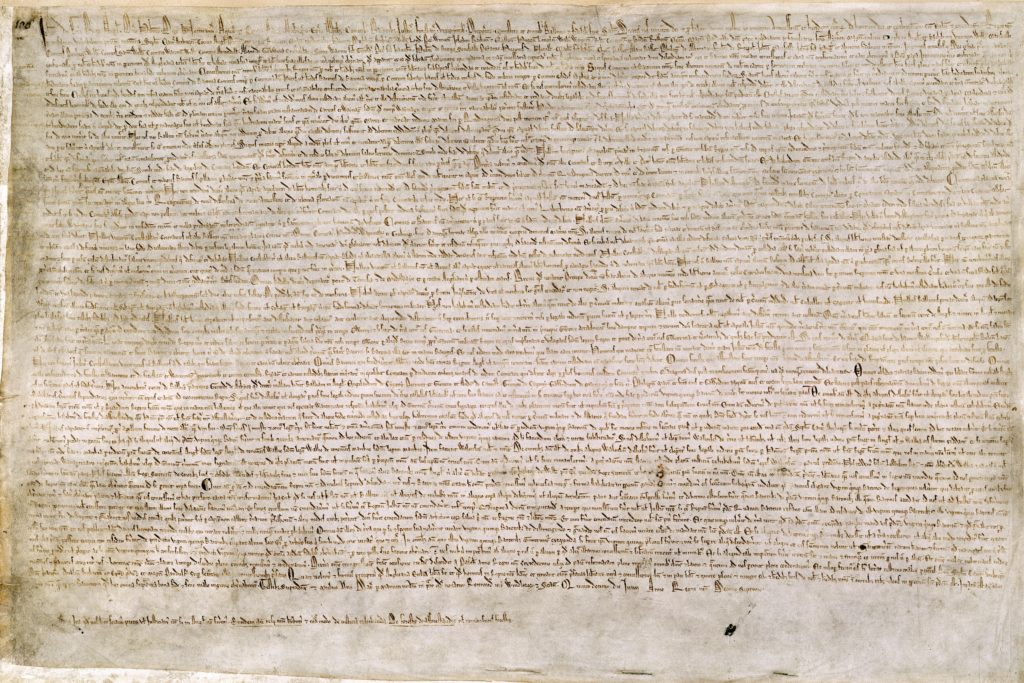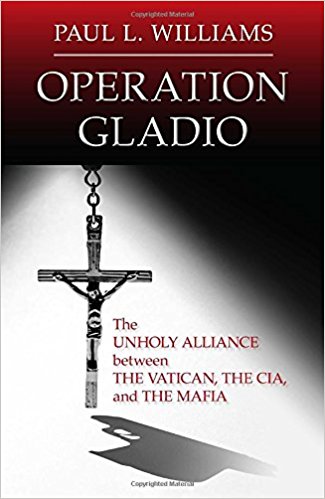by Michael Gaddy
Some Founders Seldom Heard. Why?
The vast majority of Americans have been taught by the Public Fool System, Leviathan’s historians and religious con-artists, that a group of devoutly religious men, the majority of whom were in total agreement on the tenets of government, got together in 1787 and came up with a constitution that was widely accepted and is exactly what our politicians, judges and law enforcement observe today as they go about their business.
We all have heard of James Madison who bears the title of “Father of the Constitution.” Strange indeed considering the plan of government Madison wrote and transmitted to George Washington in April of 1787 and was presented at the convention as the “Virginia Plan,” was overwhelmingly rejected at that convention. Perhaps Madison deserves the title because the proposal he wrote is almost exactly the form of government we live under today. A system of government where the central government is supreme over all and the States have been relegated to “mere corporations” with little to no say so in the conduct of the central government.
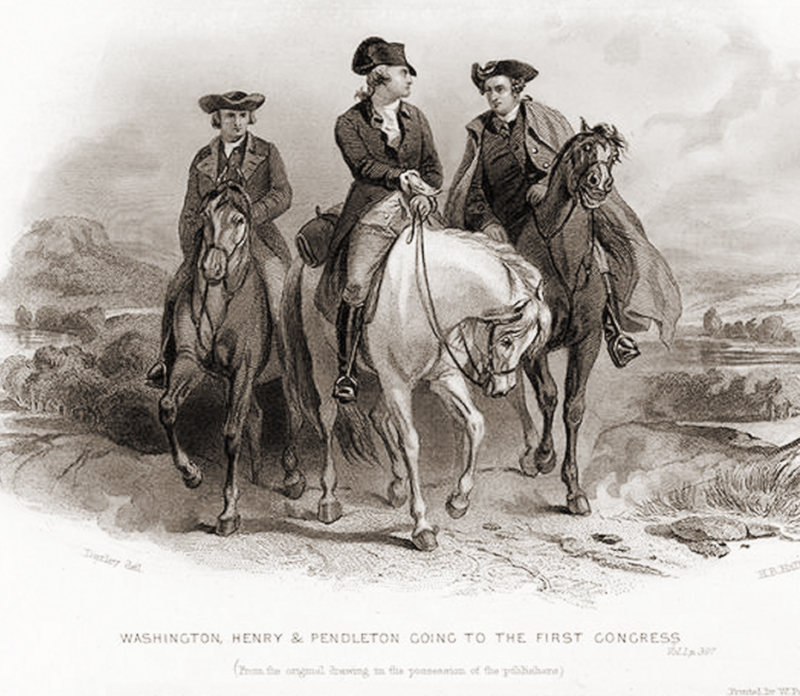
Founders Washington, Henry and Pendleton Travel to the First Congress
So, who were these virtually unknown founders and what did they have to say about what the constitution, if ratified, would lead to in our country? And more importantly were they correct in their predictions?
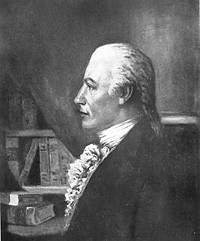
Portrait of George Bryan, President (Governor) of Pennsylvania in the 1770s
First, let us take a look at George Bryan of Pennsylvania. Is he a person that any high school graduate would be able to expound upon as a founder of our country? Would he/she even recognize the name? How many adults do you know who recognize this man? Considering he said the following might be why he is not popularly quoted.
“It is the opinion of the greatest writers, that a very extensive country cannot be governed on democratical principles, on any other plan, than a confederation of very small republics, possessing all the powers of internal government, but united in the management of their foreign and general concerns. It would not be difficult to prove, that anything short of despotism could not bind so great a country under one government; and whatever plan you might, at first setting out, establish, it would issue in a despotism.”
Please remember; the “extensive country” spoken of by George Bryan was only 13 States at the time of his statement. Now, who was correct, Bryan or Madison about what kind of government would issue from our Constitution? Who is more widely known?
Was George Bryan alone in his visionary outlook? Certainly not; he was joined by many more of our “founders” you have possibly never heard about.
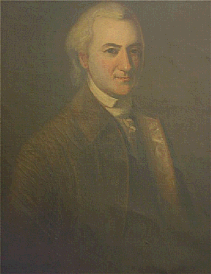
John Dickinson of Delaware (1732-1808)
There was of course John Dickinson of Delaware. Dickinson had this to say on the subject.
“We cannot have a limited monarchy…our situation will not allow it—Repubs. [Republics] are for awhile industrious but finally destroy themselves—they were badly constituted—I dread a consolidation of the States.”
Considering the passive acceptance of signing statements, executive orders and the prosecution of unconstitutional wars, who could deny that we have a full blown monarchy—not just a limited one? Certainly our early Republic was “industrious” until Abraham Lincoln, operating under the powers of a Monarch, completely discarding the Constitution along the way, destroyed the principles of consent of the governed and definitely instituted a “consolidation of the States” with bullets, cannons and bayonets.
So, we have Bryan and Dickinson—were they alone in their predictions?
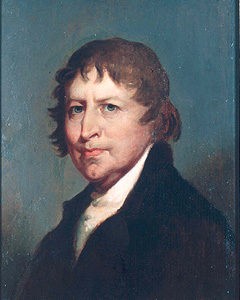
Theophilus Parsons; The Social Law Library, Boston, MA.
I’m sure almost everyone is familiar with Theophilus Parsons of Massachusetts. Certainly he is mentioned right along with the Nationalists Madison and Hamilton. Parsons stated:
“Any law…of the United States, for securing to Congress more than a concurrent right with each state is usurpation and void.”
~1788
Wow. Is there any wonder we don’t hear men like Theophilus quoted in political debates, or cited in a Supreme Court ruling?
The above were joined in their political beliefs by none other than Archibald Maclaine of North Carolina, who stated in his state’s ratification convention:
“If the gentleman will attend, he will see this is a government for confederated states; that, consequently, it can never intemeddle where no power is given.”
~1788
Hmmm—try telling this to the Director of the BLM or those who implemented Obamacare!
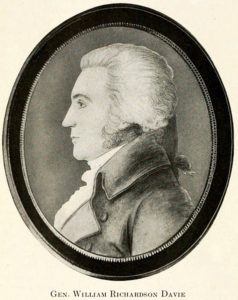
William Richardson Davie portrait attributed to Fauret de Saint-Memin
What about the words of the very well known and often quoted in today’s political landscape, William Richardson Davie, also of North Carolina?
“If there were any seeds in this Constitution which might, one day, produce a consolidation [of the States] it would, sir, with me, be an insuperable objection, I am so perfectly convinced that so extensive a country as this can never be managed by one consolidated government…if the state governments vanish, the general government must vanish also…the state governments can put a veto, at any time, on the general government, by ceasing to continue the executive power.”
~1788
Well, again, Abraham Lincoln certainly destroyed this concept. Ever wonder why the Republican Party refers to themselves as the “Party of Lincoln?” They sure as hell can’t claim to be that and claim to support our Constitution at the same time!
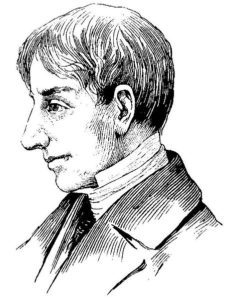
Rawlins Lowndes of South Carolina
Let’s move along to another well known authority on constitutional intent and what it would become in the future. You are right—-none other than the man mentioned by all candidates for public office and state and federal judges— Rawlins Lowndes of South Carolina, also in 1788:
“The Treaty of Peace [Treaty of Paris 1783] expressly agreed to acknowledge us as free, sovereign, and independent states, which privileges we lived at present in the exercise of. But this new constitution at once swept those privileges away, being sovereign over all; so that this state would dwindle into a mere skeleton of what it was; its legislative powers would be pared down to little more than those now vested in a corporation; and he would value the honor of a seat of the legislature no higher esteem than a seat in the city council.”
Could it be this country honors the wrong Lincoln? Perhaps we need a political party of Lincoln—founder James Lincoln of South Carolina—who said:
“What does this proposed Constitution do? It changes, totally changes, the form of your present government. What have you been contending for these ten years past? Liberty! What is Liberty? The power of governing yourselves. If you adopt this Constitution have you this power? No: you give it into the hands of a set of men who live one thousand miles distant from you. Let the people but once trust their liberties out of their own hands, and what would be the consequence? First, a haughty, imperious aristocracy; and ultimately a tyrannical monarchy.”
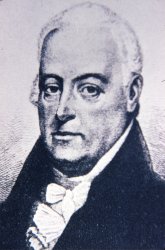
John Ten Eyck Lansing Jr. Chancellor of New York In office 1801–1814
Then, of course, there is John Lansing of New York; who, along with Robert Yates, walked out of the Philadelphia Convention because they felt the convention was exceeding the powers that had been granted to them by the people of New York. Wow—what a display of integrity. Perhaps that is why neither one of these men is widely quoted today—either by court historians or the general public. Here is what Lansing had to say about the proposed constitution at the New York State Ratification Convention. Was he right?
“Sir, if you do not give the states the power to protect themselves, if you leave them no other check upon Congress than the power of appointing Senators, they will certainly be overcome.”
(Note: the not properly amended 17th Amendment took away that check too.)
Edmund Pendleton of Virginia would state during his state’s ratification debates, while agreeing with Patrick Henry, the following:
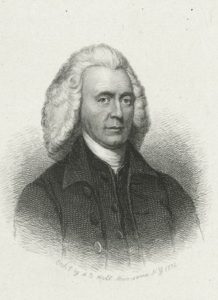
Edmund Pendleton 1872. 1st Chief Justice of Virginia. 1872 engraving by H.B. Hall.
“If this be such a government [consolidated] I will confess, with my worthy friend [Henry] that it is inadmissible over such a territory as this country. Let us consider whether it be such a government or not. I should understand a consolidated government to be that which would have the sole and exclusive power, legislative, executive and judicial without any limitation. Is this such a government? Or can it be changed to such a one? It only extends to the general purposes of the Union. It does not intermeddle with the local particular affairs of the state.”
What we have in our country today is what Edmund Randolph described in the above—a completely consolidated government that claims “sole and exclusive power, legislative, executive and judicial, without any limitation.” That is not the government that was promised to those who ratified the Constitution in 1787-88!
It is the government of Alexander Hamilton, James Wilson, John Jay, Joseph Story, Daniel Webster, Abraham Lincoln, FDR, Lyndon Johnson, Ronald Reagan, Bill Clinton, George H.W. Bush, George W Bush, Barack Obama, the US Supreme Court, federal and state judges, the law enforcement community and everyone who is running for president from both political parties in 2016.
Could it be that is why the names in the above paragraph are recognized by almost everyone, but the names of Bryant, Dickinson, Lowndes, Davie, Parsons, Lansing, Pendleton and James Lincoln are virtually unknown today—especially among politicians, educators, judges and the population as a whole?
The powers of today’s government are stolen powers, taken from the States and the people, and have led to the current state of affairs in our country. We are beyond broke; presidents use unconstitutional powers of the monarch; congress has laid down like a scared puppy, wetting the floor at the feet of the military/industrial/banking complex; our children and grandchildren are taught the laws of the tyrant are sacrosanct; the culture that founded this country is ridiculed and demonized and our government has taken on the mantle of a religion to the masses.
This was not the form of government that was ratified by the founders most have never heard of. Believe me—the fact you don’t know who they are and what they said is no accident.
IN RIGHTFUL REBEL LIBERTY

